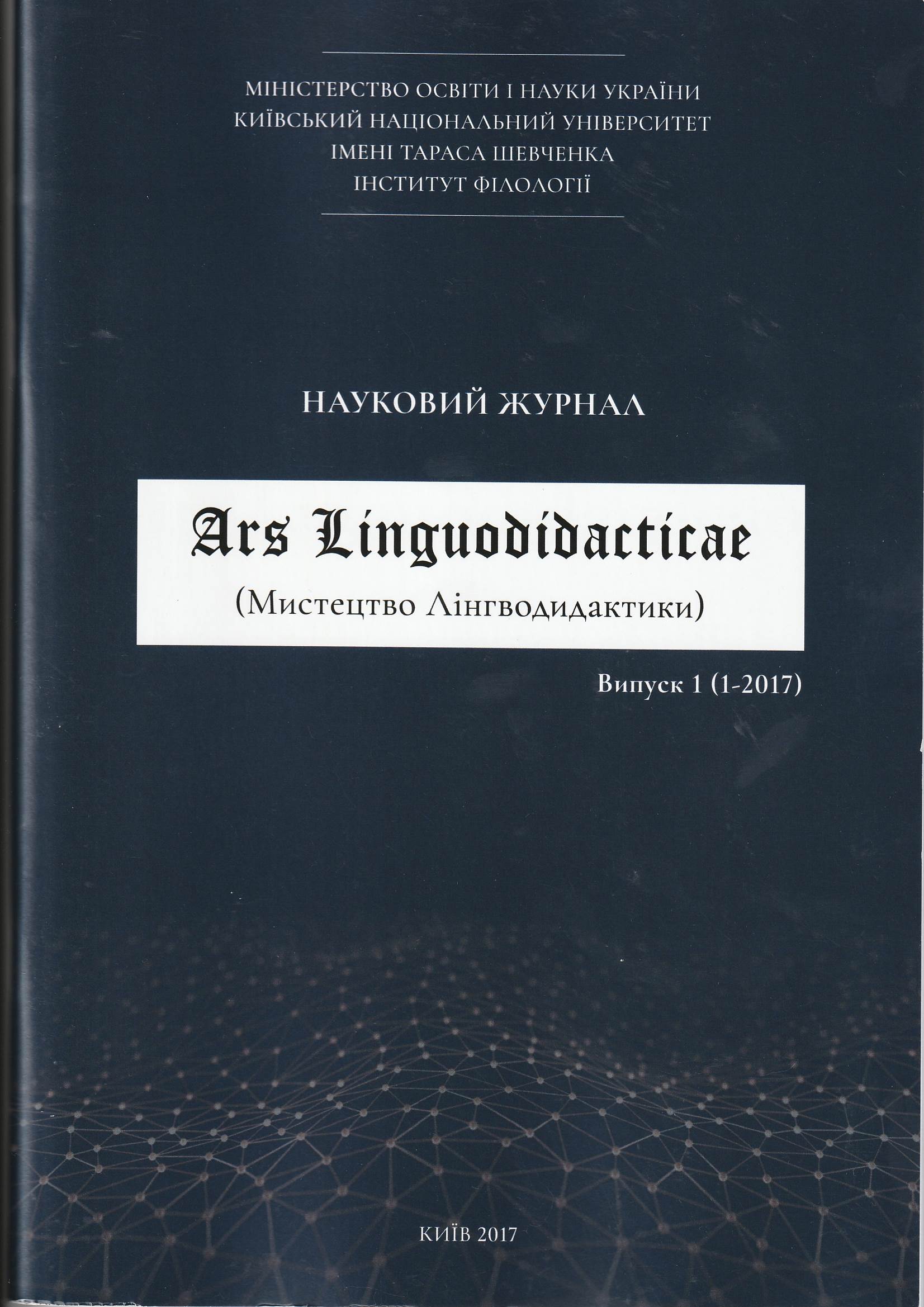LINGUODIDACTIC ASSESSMENT AND EVALUATION IN COMMUNICATIVE EDUCATION
DOI:
https://doi.org/10.17721/2663-0303.2017.1.01Keywords:
assessment, communication, direct test item, evaluation, feedback, language teaching, process, result, strategyAbstract
Background: The necessity to define the role and conceptual framework of evaluation and assessment in a pedagogical discourse has gained importance in the context of the on-going educational reform in Ukraine. This urges national educationalists to explore the formative assessment and evaluation in secondary school from the standpoint of the strategic and communicative approaches.
Purpose: The purpose of the article is to discuss the necessity and effectiveness of implementing the strategy of formative assessment and evaluation as a teaching-learning model based on English communication and suggest some methods and techniques of evaluation and assessment which will be tested empirically in the next phase of our research.
Discussion: Assessment and evaluation are very challenging issues, since they require advanced skills of choosing the tasks, writing instructions and developing proper evaluation criteria. Only valid tasks can become an effective mechanism to put communication between a student and a teacher into effect. At school, there are two main types of assessment: formative and summative. According to the regulations of the Ministry of Education and Science of Ukraine, teachers are required to execute summative assessment twice a year through a direct test which assesses actual skills (reading, writing, listening and speaking). The assessment procedure – that mainly responds to accountability interests – relies on standardized evaluation criteria, and the results of assessment include information on a full range of tasks and activities completed. However, there are no specific criteria for formative assessment activities which aim at making judgement about the process of learning instead of its result.
Results: The literature overview has enabled the authors to come up with the conclusion that only formative assessment and evaluation carried out on a frequent basis could be utilised as a communicative tool between a student and a teacher. The authors also claim that verbal assessment proved an effective technique of assessment for learning in the context of secondary school education.References
Alderson, Charles J., and Jayanti Banerjee. “Language testing and assessment. State of the art review, Part One.” Language teaching 34(4) (2001): 213-236. Web. 23 Nov. 2016.
Bachman, Lyle F. Fundamental considerations in language testing. Oxford: Oxford University Press, 1990. Print.
Black, Paul, and Dylan Wiliam. “Assessment and Classroom Learning”. Assessment in Education: Principles, Policy & Practice 5(1) (1998): 7–74. Print.
Blyznyuk, Serhiy. Rol’ otsinky u vdoskonalenni znan’, umin’ i navychok uchniv (The role of mark in improving the knowledge and skills of students). Kyiv: Znannya, 1983. Print.
Brookhart, Susan M. How to Give Effective Feedback to Your Students. ASCD: Alexandria, VA, 2008. Print.
Bygate, Martin, and Merrill Swain, and Peter Skehan. Researching Pedagogic Tasks: Second Language Learning, Teaching, and Testing. London/New York: Routledge, 2013. 194. Print.
Common European Framework of Reference for Languages: learning; teaching; evaluation. Web. 25 Nov. 2016.
Dodatok 1 do nakazu MON Ukrayiny vid 21.08.2013 № 1222 (Annex 1 to the Order of Ministry of Education and Science of Ukraine №1222 from 21.08.2013) Web. 26 Nov. 2016
Dudley-Evans, Tony. “Genre analysis: an approach to text analysis for ESP”. In Advances in Written Text Analysis, Malcolm Couthard (ed.). London/New York: Routledge, 1994. 219–228. Print.
D’yachenko, Vitaliy. Novaya didaktika (New didactics). Moscow: Narodnoe obrazovanie, 2001. Print.
D’yachenko, Vitaliy. Organizatsionnaya struktura uchebnogo protsessa I yeyo razvitie (The organizational structure of the educational process and its development). Moscow: Pedahohika 1989. Print.
Harmer, Jeremy. Essential Teacher Knowledge: Core Concepts in English Language Teaching, Glossdex. Pearson Longman, 2012. 257–287. Print.
Hattie, John, and Helen Timperley. “The Power of Feedback”. Review of Educational Research 77(1) (2007): 81–112. Print.
Heaton, John Brian. Classroom Testing. London: Longman, 1990. Print.
Il’yna, Tat’yana. Pedagogika (Pedagogics). Moscow: Prosveshchenye, 1984. 18. Print.
Inozemni movy. Prohrama dlya zahal’noosvitnikh navchal’nykh zakladiv. 5 – 9 klasy. Kryteriyi otsinyuvannya navchal’nykh dosyahnen’ z inozemnykh mov zatverdzhenni
Downloads
Published
How to Cite
Issue
Section
License
Copyright (c) 2017 Олеся Любашенко, Олена Сухенко

This work is licensed under a Creative Commons Attribution-ShareAlike 4.0 International License.
This work is licensed under a Creative Commons Attribution-NonCommercial 4.0 International License.
Copyright policy according to the terms of the license: Creative Commons "Attribution-NonCommercial" 4.0 International (CC BY-NC 4.0).
Authors who publish their articles in "Ars Linguodidacticae" (Open Access Journal) retain the following rights:
- The authors retain the copyright of their article and grant the Ars Linguodidacticae journal the right to first publish the manuscript of their article under the Creative Commons (CC BY-NC 4.0) Attribution License, which allows others to freely distribute the published work with mandatory reference to the author of the original work and first original publication in the Ars Linguodidacticae journal. An indication of the retention of the copyright of the work is provided on the title page of the article.
- The authors reserve the right to enter into separate contracts for the non-exclusive distribution of their article as published in Ars Linguodidacticae (e.g., placing the article in electronic libraries, archives and catalogs or publishing it as part of institute collections and monographs), provided that a full reference to the first original publication in Ars Linguodidacticae is given.
- The policy of the "Ars Linguodidacticae" journal allows and encourages authors to post a manuscript both before and during editorial processing, as this promotes productive scientific discussion and has a positive effect on the speed and dynamics of citing the article.
The editorial board reserves publishing rights to:
- the collated original articles and to the entire issue of the journal.
- the design of the journal and original illustrative and supplementary materials.
- the reprint reprints of the Journal in printed and electronic form.
The copyright policy is carried out according to the terms of the license: Creative Commons "Attribution-NonCommercial" 4.0 International (CC BY-NC 4.0).
For more information, please read the full text of the CC BY-NC 4.0 Public License.
Creative Commons Attribution-NonCommercial 4.0 International License.


